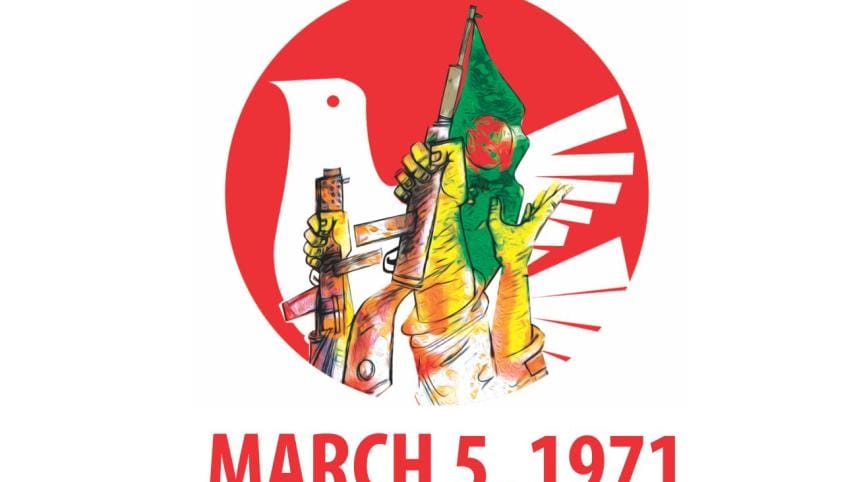March 12, 1971: More support for movement

The black flag continued to wave.
With it increased the number of people, from various fields and walks of life, in support of the non-cooperation movement.
All over East Pakistan, under the instruction of Bangabandhu Sheikh Mujibur Rahman, all government, semi-government and private offices, educational institutions and banks remained closed.
In Bogra, 27 prisoners broke out of jail. Law enforcement opened fire, and one prisoner died, while 15 were injured.
While, at a press briefing in Lahore, Air Marshall Asgar Ali Khan said that fate was playing an odd game, where the fault was of Lahore, yet shots were fired in Dhaka.
He said the people of the East region wanted to live with equal rights, not be the slaves of West Pakistan, and now the only way to alleviate this problem was to hand over power to Sheikh Mujibur Rahman.
Meanwhile, National Committee member Mohammed Zahiruddin gave up the title given by Pakistan Government.
In East Pakistan, Bangalee militancy kept moving up by degrees.
On Dhaka University campus, students marched in military formations, giving the clear impression that the Bangalee nation was preparing for what could turn out to be a war of attrition against Pakistan.
Women prominent in their various field, including the noted poet Sufia Kamal, organised themselves into resistance groups and declared absolute support and loyalty towards Bangabandhu and the movement.
Overall, the atmosphere was one of a province that was about to become a free country, despite the fact that the Awami League and the regime were expected to engage in a dialogue on a resolution of the crisis sooner rather than later.
Bangabandhu and his senior colleagues in the party met every day and over long stretches of time assessing the situation and directing the course of actions.
For Bangabandhu and for the Bangalee nation, freedom was only a matter of time.



 For all latest news, follow The Daily Star's Google News channel.
For all latest news, follow The Daily Star's Google News channel.
Comments